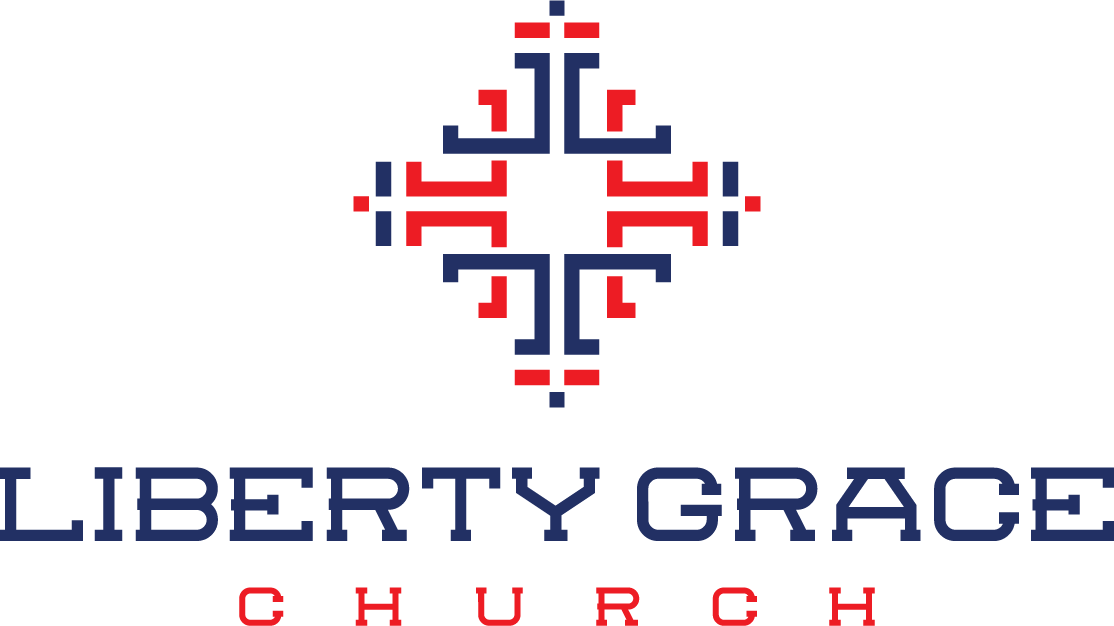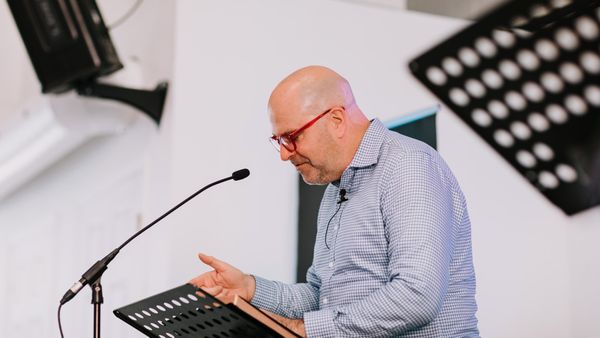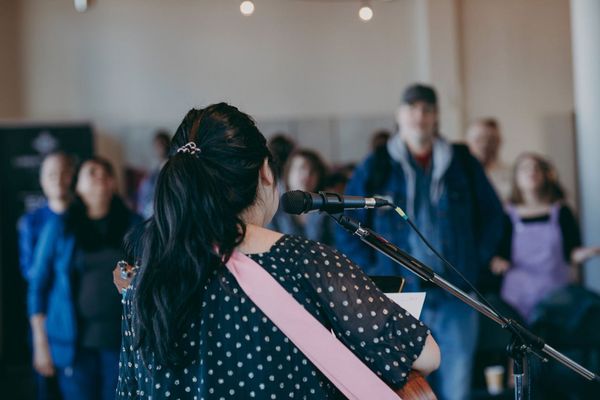
I don’t know if you realize it, but we’re kind of an unusual church. I don’t know many churches like us.
- We are in a downtown community.
- Our community is mostly young and single.
- We’re well educated. Most of us have a university degree, and most of the rest have a college degree.
- Generally speaking, we make a decent amount of money. But most of us are stretched financially because it’s so expensive to live here.
- We’re in a very transient neighborhood. Almost three out of four of us will not be here in two years.
When I talk to other pastors, I realize how unusual our church is. And yet this is our community. This is where this church is called to serve.
What does it look like to love God and love others in this context? Not everything will be different, but maybe some things will be. What does it look like to love God and others when we’re probably here for only a short time, we’re young, single, and broke, and facing the pressures of life in a very secular setting? And how do we do this together?
One way to answer this question is with a rule of life.
What's a Rule of Life?
In his excellent book The Common Rule, Justin Whitmel Earley describes what a rule of life is and how it can help us:
We are all living according to a specific regimen of habits, and those habits shape most of our life…
A “rule of life” is a term for a pattern of communal habits for formation … Despite our understanding of the word “rule,” a “rule of life” is much less about obeying rules than it is about finding communal purpose … taking the small patterns of life and organizing them towards the big goal of life: to love God and neighbor.
A rule of life is how we get our hands on our habits … All those who want to be attentive to who they are becoming must realize that formation begins with a framework of habits.
In his book God in My Everything, Ken Shigematsu defines the term: “A rule of life is simply a rhythm of practices that empowers us to live well and grow more like Jesus by helping us experience God in everything.”
To love God and love others, we need a communal rule of life.
Developing Our Rule of Life
So what would a Liberty Grace rule of life look like? What communal rhythms, practices, and habits would help us love God and love others?
That’s what this booklet tries to answer.
The goal is that you use the suggestions in each chapter as a starting point. Don’t try to do everything. Experiment. Start small and build. Don’t worry about getting it perfect. Treat it like a working document that you’ll adapt and shape for the rest of your life. Hack yourself. Join with others who can encourage and support you.
This booklet was shaped by the people of Liberty Grace Church. Thank you to everyone who contributed suggestions and material for the content that follows.
Let’s get started in building a set of rhythms that help us to love God and others.
Downloads
Habits (click to open)
Slowing
Busyness endangers our souls. Because of this, make room for the one thing that matters most: to slow down and sit at Jesus’ feet.
Resources
- The Ruthless Elimination of Hurry by John Mark Comer
- Sabbath page on TheCommonRule.org
- Sabbath page on PracticingtheWay.org (includes teachings, suggested practices, and recommended resources)
Ideas
- Align your schedule with your priorities. Decide what matters most to you and schedule that. Include spiritual disciplines, sleep, exercise, work, play, reading, margin. Keep working on your schedule until your schedule aligns with your values, and then stick to it.
- Kill your distractions. Figure out what the activities and commitments — even good ones — that distract you from what matters most, and take deliberate action to cut them out of your life.
- Take a weekly Sabbath. For one day a week, stop. Don’t engage in any work or anything that feels like an obligation. Rest, pursue God, and pursue activities that restore your soul.
- Link your personality with your preferred way of connecting with God. Look for others who have a personality similar to yours, and learn how they relate to God. For instance, task-oriented people can try making time with God a priority on their task list. Unstructured people can try looking for spontaneous ways to engage with God.
- Find a simple way to identify your priorities. Use the “to-do tournament” idea (strategy 4 in this article) to pick your top priorities, not just your top tasks. Make sure these priorities are reflected in your calendar.
- Find your personal capacity, and be okay with it. We all have different ranges of what we can handle due to circumstances, temperament, and other factors. It’s okay to stretch yourself a little, but resist comparing what you can get done with others. Be content with what you can handle, and live within your own capacity.
- View your time with God not as another stressor, but as a way to handle the stress in your life. In A Praying Life, Paul Miller suggests that we manage our lives through prayer and our relationship with him. “I’m actually managing my life through my daily prayer time. I’m shaping my heart, my work, my family—in fact, everything that is dear to me—through prayer in fellowship with my heavenly Father.”
- Ask God for help, and not just on the big questions. God knows better and has the resources we need, so ask him for help in slowing and for making time with him.
- Occasionally leave your phone at home. Go for a walk alone or with someone else with the goal of enjoying God and being present with him.
- Use your mornings to set up your day, especially if you’re a morning person. “Rose in the morning" is a common phrase in the Old Testament and often the men and women who did this worshipped God first and spent time with God doing his will first. In the case of Genesis 22, Abraham started his journey of sacrificing his son first thing in the morning. Jesus also did this in Mark 1:35 when he rose in the morning to spend time with the Father. By walking with Jesus first thing, we set up the rest of the day.
- Tap into the image of “walking with God.” “That visual of walking with God in the garden would be how I would think of slowing. In such a busy city we live in, imagine that Jesus is walking beside you and that perspective change already slows down my own heart rate. I heard this podcast the day after the sermon, and it speaks about this.”
Technology and Meditation
Big Idea
Whatever shapes your thinking shapes your life, so make God’s Word your primary shaping influence by meditating on it.
Resources
- Digital Minimalism by Cal Newport
- The Tech-Wise Family by Andy Crouch
- Holy Noticing by Charles Stone
- "Scripture Before Phone" on TheCommonRule.org
- Articles on why we delight in the Word: "What’s Your Primary Story?", "Why You Must Rethink Your Life Story In Light of the Gospel"; "Resolutions for the New Year"
Ideas
- Take a digital fast. Choose a length of time (21 days or longer) and use tech for only essential tasks (work-related functions). Include social media in the fast. Slowly reintroduce only the technology that supports things that you value.
- Set boundaries for your tech. For instance: take a digital Sabbath, eliminate notifications, use only one screen at a time, etc. Find what works for you. The idea is that you’re controlling your technology rather than allowing it to control you. being intentional about your use of technology.
- Use technology to help your walk with God. “Technology provides us with many tools to help support our meditation of Scripture.” Find tools that help your walk with God rather than distract you from it.
- Practice biblical meditation for five minutes a day. Find a list of verses to memorize — from Fighter Verses, for instance. Try to memorize a verse a week. Take five minutes each day to chew on that week’s verse, roll it around in your mind, and fill your mind with its truth.
- Scripture before phone. “Refusing to check the phone until after reading a passage of Scripture is a way of replacing the question ‘What do I need to do today?’ with a better one, ‘Who am I and who am I becoming?’ We have no stable identity outside of Jesus. Daily immersion in the Scriptures resists the anxiety of emails, the anger of news, and the envy of social media. Instead, it forms us daily in our true identity as children of the King, dearly loved.” (The Common Rule)
- Put the Bible app on your home screen, not buried in a folder.
- Find podcasts, songs, and social media accounts that prepare you to hear God’s Word. Listen to audio Bibles and Bible-based podcasts. When you need to focus, listen to instrumental worship songs. “Hymns (Hillsong Kids Jr. Piano Lullabies, Vol 1 and 2 are a good start) or worship songs. Being intentional about what you put in as was said on Sunday really sets up your day.”
- Aim for progress, not perfection. “I'm not very good at meditating on Scripture and always feel clumsy. But what has helped me is knowing it doesn't have to be perfect. Honestly, sometimes for me it is simple as looking at a verse, like really looking it and trying to understand each word in context to the verses before and after.” Keep it simple, and don’t worry about meditating on Scripture perfectly.
- Talk to God and others about what you learned. “Praying … back to God aloud also helps me to put it in my heart. If you have a good friend, telling them about what you learned/what stood out to you and verbalizing it also helps me.”
Stories
"Yesterday my Bible verse of the day that I meditated on first thing in the morning was about asking for wisdom. I prayed and asked God for this for my day and it was so encouraging. 2-3 significant problems I had been grappling with for a while suddenly became clearer and I was able to move forward with a clear path and others were aligned to the solution. It was unexpected open doors and resulted in a very good day. So encouraging!"
Prayer
Big Idea
Come to God because he cares for you. Remind yourself of who he is, tell him what’s on your mind, and use Jesus’ model prayer.
Resources
- A Praying Life by Paul Miller
- Divine Rendezvous by John Crocker
- Every Moment Holy by Douglas Kaine McKelvey
- 22 Life Lessons on Prayer by Tim Kerr — Free PDF download
- The Common Rule prayer habit: kneeling prayer three times a day
Ideas
- Kneel and pray three times a day at morning, noon, and bedtime.
- Remind yourself of God’s presence. Use notifications to remind you that God is present with you every moment of your day. Take a few moments and remind you of his presence.
- Tell God what’s on your mind. Jared Wilson says we should spill our guts to God. Don’t worry about what your prayers sound like. Come to him as honestly as you can.
- Use Jesus’ model prayer, the Lord’s Prayer, to frame your own prayers.
- Try written prayers. Journal your prayers.
Stories
“Keep at it. I found this daunting in more ways than one. I didn’t know how to pray when I became a Christian. I modeled my prayers after others. It took practice to pray on my own. I started by prayer for people immediately in front of me. The lady sitting in front of me on the subway with a stressed-out face or the homeless man at the corner. From there I branched out to praying out loud during small group and being honest in the midst of the group that I am tired, unfocused but to Him be the glory. I recently read through 22 Life Lessons on Prayer by Tim Kerr and have added reminding God of His promises. Not that God needs the reminder but that through reminding Him, we are reminding ourselves that He is sovereign over all. You just have to keep at praying and keep trying. As you practice that, you’ll slowly build a muscle for prayer.”
Church
Big Idea
The call to follow Jesus is a call to community. Following Jesus involves sharing your life with his followers in worship, faithful encouragement, and loving service.
Resources
- Uncomfortable: The Awkward and Essential Challenge of Christian Community by Brett McCracken
- The Gospel Comes with a House Key by Rosaria Butterfield
- The Hilarity of Community by Marva Dawn
Ideas
- Make it a point to show up consistently. Show up, even when you don’t feel like it. Better yet, come early and be ready to linger so you can engage with others.
- Sit down with someone for coffee no matter how awkward it may feel.
- Take the time to tell someone how much you appreciate his/her service/presence/smile (whatever). Do that for someone else next week (and so on).
- Serve. Get to know one or two people and serve with them. “I found serving at church the most helpful way in participating meaningfully in church. I can get to know people initially in a less awkward fashion because we are engaging in a task together. From there, asking questions about people’s lives and actively listening to them.”
- Pray with people. When you hear of a need, pray about it openly in church.
- Engage as meaningfully as possible. “Take the previous practices and implement them on the Lord’s Day. Take it slow. Get to church early and in an unhurried fashion. Engage with each person you meet. Prepare your heart before you go to church. That might mean reading His Word or even praying for the church. Pray for each person or write down their needs in a prayer journal and pray for them throughout the week.”
Stories
“I’ve learned to just show up. There are many days I may not feel like going to church but it’s not about me, it’s about Him and His community. In the process of showing up, my cup will also be filled too.”
Fasting
Big Idea
Fast as Jesus expected to seek God.
Resources
- A Hunger for God by John Piper
- Reappearing Church by Mark Sayers
- "Fasting for Beginners" by David Mathis
Ideas
- Start small. Start with fasting for one meal. Maybe eventually move up to two meals after a number of weeks. Maybe try a juice fast when you do.
- Plan what you’ll do instead of eating. How will you use the time for the spiritual purpose you’ve picked? “Without a purpose and plan, it’s not Christian fasting; it’s just going hungry" (David Mathis).
- Consider how it will affect others.
- Try different kinds of fasting. For instance, fasting alone and fasting with others.
- Fast from something other than food — social media, TV, or Netflix, for instance. Spend that time reading the Bible or praying. “
- Focus your attention on God, rather than on what you're missing.
- Pray about why God wants you to fast. "If you go on a media fast (not using social media or watching Netflix, TV, etc) and spend that time reading the Bible or praying, you will definitely gain a lot of clarity with hearing the Holy Spirit speak."
Stories
“My church back home does an annual fast every year in January for 21 days and this year it was very fruitful. I've been fasting for 4 years and I built my fast up every year (from fasting one meal to two meals to only consuming liquids as meals). You definitely need to watch your own health and body as you do it. This year, because I was only consuming liquids and the weather, was cold, my body started reacting negatively, so I started eating vegetables and fruits as well.”
“There definitely needs to be an element of sacrifice in it (for example if you skip breakfast, you shouldn't fast breakfast). The purpose of fasting is to come to a place where you humble yourself before God because you realize how weak you are without him.”
“What I've learned is, the more you fast, the more you need to watch your heart and keep it centered on Jesus. Because it can very easily turn into ‘oh it's time to lose weight; or like the Pharisees, a way of showing off how ‘spiritual’ you are.”
Money
Big Idea
Invest in God and his kingdom, not in stuff.
Resources
- Christians Against Poverty Money Course
- Money, Possessions, and Eternity by Randy Alcorn
- The Treasure Principle by Randy Alcorn
- The Ruthless Elimination of Hurry by John Mark Comer has a great section on simplifying our possessions
Ideas
- Remember that your money is not yours. We are stewards of God’s provisions. Lean in on the Spirit to know where it will go. “Money comes and goes (quickly sometimes) so I don’t chase that, but I chase God love His people as well as I can.”
- Get rid of stuff that distracts you. Get rid of possessions that occupy too much of your time or take up too much headspace.
- Learn to be generous. Be generous with other people and to the Lord and his work. Start where you are and grow. For instance, start wherever you are and increase by 1% every year until you reach at least 10%.
- Simplify. Deliberately choose to live on less so you can live a fuller life of love for others.
- Trust God. “Trust God. Simple words. There are seasons I struggled to believe that and I might return to old habits of working through things using grit and being on the cusp of burning out. Taking a Sabbath is a great help to just trust God with one whole day and I found that trickles into all areas of life after.”
Hospitality
Big Idea
Love and serve others generously through hospitality, just as Jesus has done for us.
Resources
- The Gospel Comes with a House Key by Rosaria Butterfield
- The Art of Neighboring by Jay Pathak and Dave Runyon
Ideas
- Show up at social events with a focus on serving others. Don’t show up focused on what you can get out of it. Show up with a focus on serving others who are there. Ask them questions. Let them have the last nacho.
- Be strategic in opening your home. John Piper asks, “How can I draw the most people into a deep experience of God's hospitality by the use of my home or my church home? Who might need reinforcements just now in the battle against loneliness? Who are the people who could be brought together in my home most strategically for the sake of the kingdom?” Look around and invite those kinds of people into your home.
- Start small. Don’t serve a fancy meal. Don’t worry about the house being neat. Invite people into your everyday ordinary life with all of its imperfection. If you are nervous to start opening your home to strangers, start small and invite one or two people from church to your house for dinner. As you build this habit, you can begin to invite more people and grow your circle.
- Start with your church family. We can practice hospitality by beginning with opening up our home and our time to those we see on Sundays each week.
- Pair up with others. Pair up with people who are able to host. Hosting takes a lot of work and by pairing with someone who hosts, you can help them with the little things to make it easier. This way all can participate in the moment of being together.
- Pick a night. Make a certain night your hospitality night. Free up a night and when the invite comes, say yes. For some people, we aren't in a situation where we can open our homes. In that case, be intentional about opening up time in your schedule. Pray about it and begin to see God work at filling that time for his plans and purposes.
Stay and Don't Settle
Big Idea
Jesus transforms how we live together in ways that go against our natural inclinations and our culture so that we go from minimum to maximum church:
- From living as we choose to submitting to God’s Word
- From independence to sharing a common life together
- From eating alone to eating together
- From relying on ourselves to relying on God
Resources
- Gracepoint | Our Story & Vision — Acts 2:42-47. Is it just a picture of the church from 2000 years ago or can it exist today?
- Godspeed: The Pace of Being Known — Follow the story of an American pastor whose desire to change the world grinds to a halt in a Scottish parish. Join Eugene Peterson, N. T. Wright and Granny Wallace on a pilgrimage to being known in your own backyard.
- Liberty Grace Church Covenant
Ideas
- Look for ways to lean into community. Be intentional. Tell others what’s really going on in your life. Go out for dinner after church. Invite people over to your place. Get together regularly and in both planned and spontaneous ways.
- Start small. "We all have busy lives so find ways that work for you. Coffee dates once a month or every few weeks. Texting every few days. From there, as you build your relationship, you will find it gets easier to stay connected.”
- Keep a prayer list. Pray for others in the church. “I find that this keeps people in mind and so you are more likely to reach out to them.”
- Make your default answer “yes.” If someone asks you to get together, go for it! “Say yes. We live in a culture of no first. So free up time in your schedule, pray about God using that time, and saying yes when the invite to eat together comes.
- Keep inviting others into community. “If you are the type of person that is comfortable to do so, invite others and don't be discouraged if people say no. Keep praying.”
- Consider staying. The church in Berkeley said, “What if instead of scattering to chase the American dream, we continue to live in community? What if we continue to live close enough to borrow sugar or milk or even a meal?…What if instead of thinking about my future and my spiritual aspirations, we thought about our future, of what we could build together for the kingdom of God? And that’s what we decided to do.” What if instead of moving like everybody else, you made a long-term commitment to this place and these people for Jesus’ name? Consider a vow found in the rule of St. Benedict: the vow of stability. It means staying put, even when it gets ordinary, even when it would be easier to leave.
Stories
“For myself, I wanted to find a community (a home church) and despite all my frustrations some days that go along with that, it is to stay committed to it. Membership helps. Beyond membership, it is realizing God will use you no matter where you are for his glory and purpose. We just need to keep a perspective about that and keep remembering the big picture. Pray. Don't give up and keep pursuing the family of Christ.”





